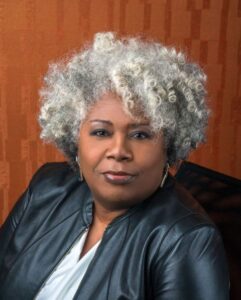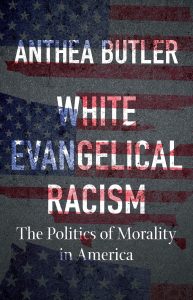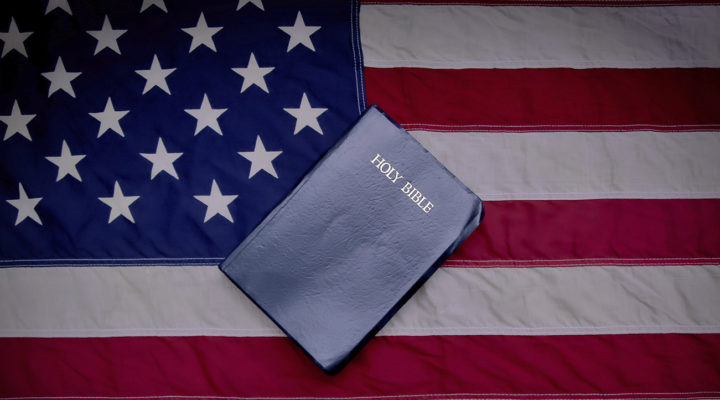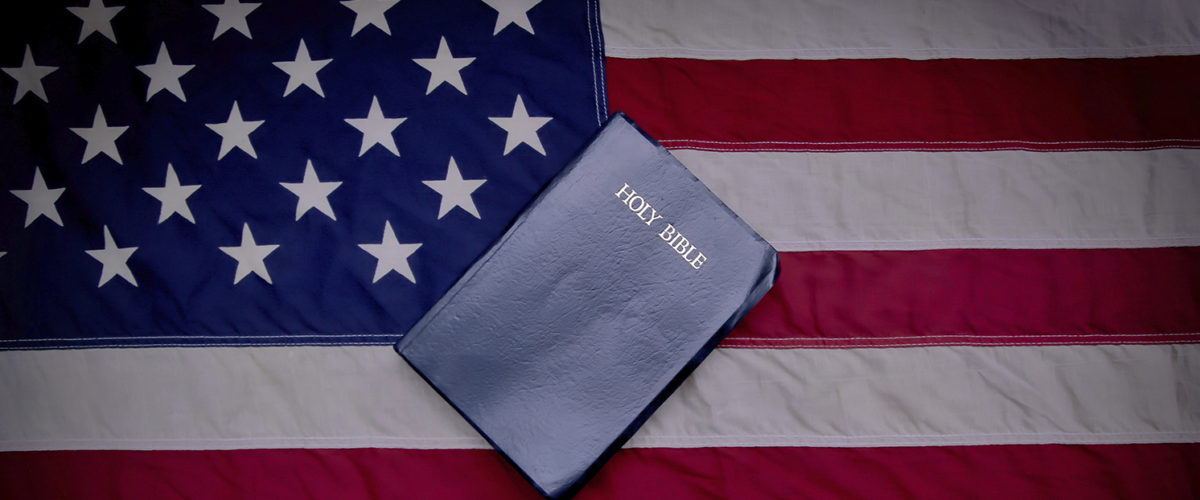Christian nationalists are still Christians despite their embrace of white supremacy and anti-democratic violence, scholar Anthea Butler said during an episode of the Interfaith Alliance’s “State of Belief” podcast.
“They really believe in their Christianity. It’s just that they are woefully wrong because they’ve embraced the nationalism piece, and they’ve embraced it very hard,” said Butler, chair of religious studies at the University of Pennsylvania and author of White Evangelical Racism: The Politics of Morality.

Anthea Butler
Christians Against Christian Nationalism defines the movement as a political ideology and cultural framework that seeks to blend American and Christian identities in order to privilege white Christians in U.S. policy and law.
“The threat of Christian nationalism is not new. But this movement, which promotes the idea that to be a real American you must be Christian, is growing with a dangerous intensity,” according to the organization, which is a project of Baptist Joint Committee for Religious Liberty.
Butler described herself as “a bit more of a pessimist than most people” about the state and future of democracy given the movement’s more recent social and political influence.
“We have to realize this is a serious moment and that these ideas about Christian nationalism have been with us for a very long time, but they have been activated in a certain way with this wholesale embrace of Donald Trump and all the nefarious people who are surrounding him,” she said.
“These ideas about Christian nationalism have been with us for a very long time, but they have been activated in a certain way with this wholesale embrace of Donald Trump.”
Podcast host and Interfaith Alliance President Paul Raushenbush noted white Christians typically have a hard time seeing just how deeply the nationalist ideology is embedded in church history and theology.
Butler responded that Blacks have no problem seeing it because they have been the target of white Christian nationalism since the founding of the nation: “You don’t become a person of faith in this country, who is a person of color, and not notice the woeful kinds of ways in which the (Christian) message gets distorted, and that what they say and what they do are two different things.”
The fruits of Christian nationalism include centuries of global oppression, she added. “When you embrace the message of Christianity, you also embrace 2,000 years of history, some of which has killed Muslims, killed Jews, stomped on Native Americans, enslaved African Americans and made sure Asian Americans were interned. I could go on, but if you really want to do history and grapple with Christianity, you have to grapple with all of it. You cannot grapple with just a piece of it.”
 Christian nationalism is all about taking history in pieces and distorting or covering up all evidence that disputes their belief that America was founded as a Christian nation, Butler charged. As an example, she cited Thomas Jefferson’s personal letter to the Danbury Baptist Association in Connecticut emphasizing the importance of maintaining the U.S. as a nation free of church-state entanglements.
Christian nationalism is all about taking history in pieces and distorting or covering up all evidence that disputes their belief that America was founded as a Christian nation, Butler charged. As an example, she cited Thomas Jefferson’s personal letter to the Danbury Baptist Association in Connecticut emphasizing the importance of maintaining the U.S. as a nation free of church-state entanglements.
“But we don’t pay attention to it and Christian nationalism is the best way to understand that we have not paid attention to this message, and that there is a supposition that this country is supposed to be a Christian nation and everybody else could just do whatever.”
Raushenbush recommended Americans watch the newly released documentary God + Country, which includes an interview with Butler, to begin or continue their learning about the white supremacist movement in U.S. politics and society.
“Yours is such an important voice in the film because of the way you talk about race and Christian nationalism. It’s the foundation in some ways of how you wrote White Evangelical Racism,” he said.
Butler said she wrote the book in 2020 but its publication came a couple months after the January 6 insurrection.
The rationalizing and justification of the attack by Donald Trump and his supporters illustrates the way conservatives use Christianity as cover for white supremacist political objectives, she added. “There has been an effort among evangelical historians to valorize evangelicalism in this country, to make that history be a really nice history about how great we were. We wanted to get rid of abortion. We wanted to make sure that abolitionism happened. We all did missionary work. We did all that stuff, it’s true.
“What they discount is the fact that they’ve whitewashed that whole history, and that whitewashed history ignores that evangelicals were totally into slavery, that the biggest white denomination in this country, the Southern Baptist Convention, became a convention because of slavery. And you can’t ignore that.”
“Don’t get surprised when evangelicals vote en masse for Donald Trump. They want whiteness.”
A lot of Southern Baptists are unaware of the denomination’s history, said Raushenbush, who is a Baptist minister. “And they don’t want to know.”
The attempted cleansing of that history continues in laws that ban teaching about Critical Race Theory and racism in public schools, Butler said. “You can look forward and see why states like Florida don’t want you to teach about slavery. You have to get permission to do a Black History Month thing. This is because they don’t want you to know the actual truth about what has happened.”
And that aversion to truth gets votes, Butler said. “So, you don’t get surprised when evangelicals vote en masse for Donald Trump. They want whiteness. And even if you have African Americans and other people of color there, they want them to become culturally white.”
Persecuting the trans community also is a tactic Christian nationalists use to distract from the injustice of their ideology, she added. “It’s not like (transgender people) haven’t been there, but all of a sudden they have picked an issue and they have picked a particular group of people to vilify, which comes at race a different way.”
Related articles:
Butler and Barr connect the dots between race and gender and patriarchy
Church-state separation ‘very thin’ with Trump Republicans, Butler says on ‘Meet the Press’
The Christian case for democracy | Analysis by Mark Wingfield


